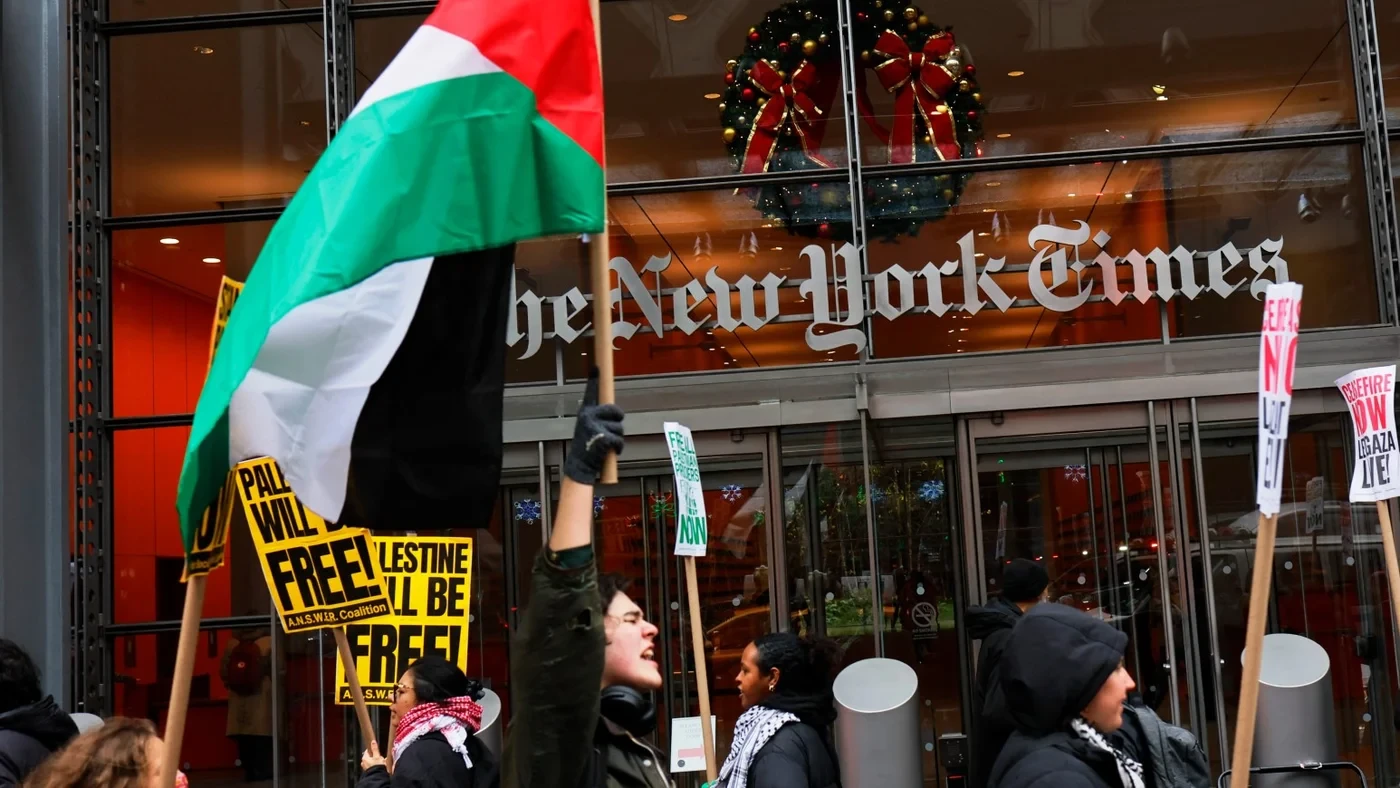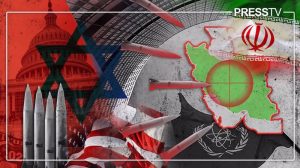A media-analysis report released on 20 November titled ‘Framing Gaza’ presents data showing that major western outlets mention “Israel” far more often than “Palestine” in both headlines and article bodies.
The outlets in question mention big names, including the New York Times (NYT), BBC, Le Monde, the Globe and Mail, The Guardian, Reuters, AP, and AFP.
According to the dataset, NYT uses “Israel” in headlines 1,868 times and “Palestine” only 10 times, a ratio of 187 to 1.
The disproportionate pattern appears across the other outlets, with BBC showing 1,100 uses of “Israel” in headlines and 91 uses of “Palestine,” Le Monde showing 1,087 versus 65, and De Telegraaf showing 952 versus 65.
The report also notes that when “Palestine” does appear in headlines, over half of them refer to “pro-Palestine protests” or “Palestine Action,” rather than to Palestinians themselves.
In article bodies, the imbalance continues, as data shows NYT using “Israel” 69,653 times compared to 2,411 uses of “Palestine.” Other outlets display similar disparities, including Der Spiegel (32,169 versus 1,323), BBC (26,839 versus 1,619), and Le Monde (15,772 versus 2,146).
The accompanying explanation in the report states that Palestine is not omitted because it is “unrecognized,” but because it is considered “inconvenient.” The dataset covers Gaza-related articles published between October 2023 and August 2025.
This structural erasure aligns with wider investigations showing how Israeli political, military, and digital operations rely on narrative control to dominate public perception.
Researcher and writer Mohamad Hasan Sweidan notes in an analysis published by The Cradle that Israel’s campaign in Lebanon has long relied on both airstrikes and coordinated propaganda to flip blame and portray its violations as “defensive.”
By pressuring Lebanese factions, erasing its own ceasefire breaches, and shaping public perception, Tel Aviv uses the same narrative tools described in the bias report: dominance of language, suppression of context, and strategic framing to weaken resistance and control the story.
In the broader digital front, Israel runs a self-described full-scale digital war.
In what Israeli Prime Minister and wanted war criminal Benjamin Netanyahu describes as the “Eighth Front,” mass reporting, AI filters, paid influencers, and covert accounts all work in tandem to erase Palestinian narratives and flood platforms with state-approved messaging.
An investigation by MintPress News published on 18 July states that Israel had bought tens of millions of YouTube ads to whitewash its Gaza genocide and attacks on Iran, reaching 45 million Europeans with polished pro-Israel messaging.
Tech platforms allow the content to run despite clear factual contradictions, reflecting the same structural media bias seen in headline ratios: Israeli narratives dominate; Palestinian suffering is minimized or erased.
Beyond the digital arena, during the height of the Gaza genocide, Israel created a military “Legitimization Cell” to fabricate justifications for killing Gaza journalists and to smear them as Hamas affiliates, silencing the Palestinian narrative at the source.



